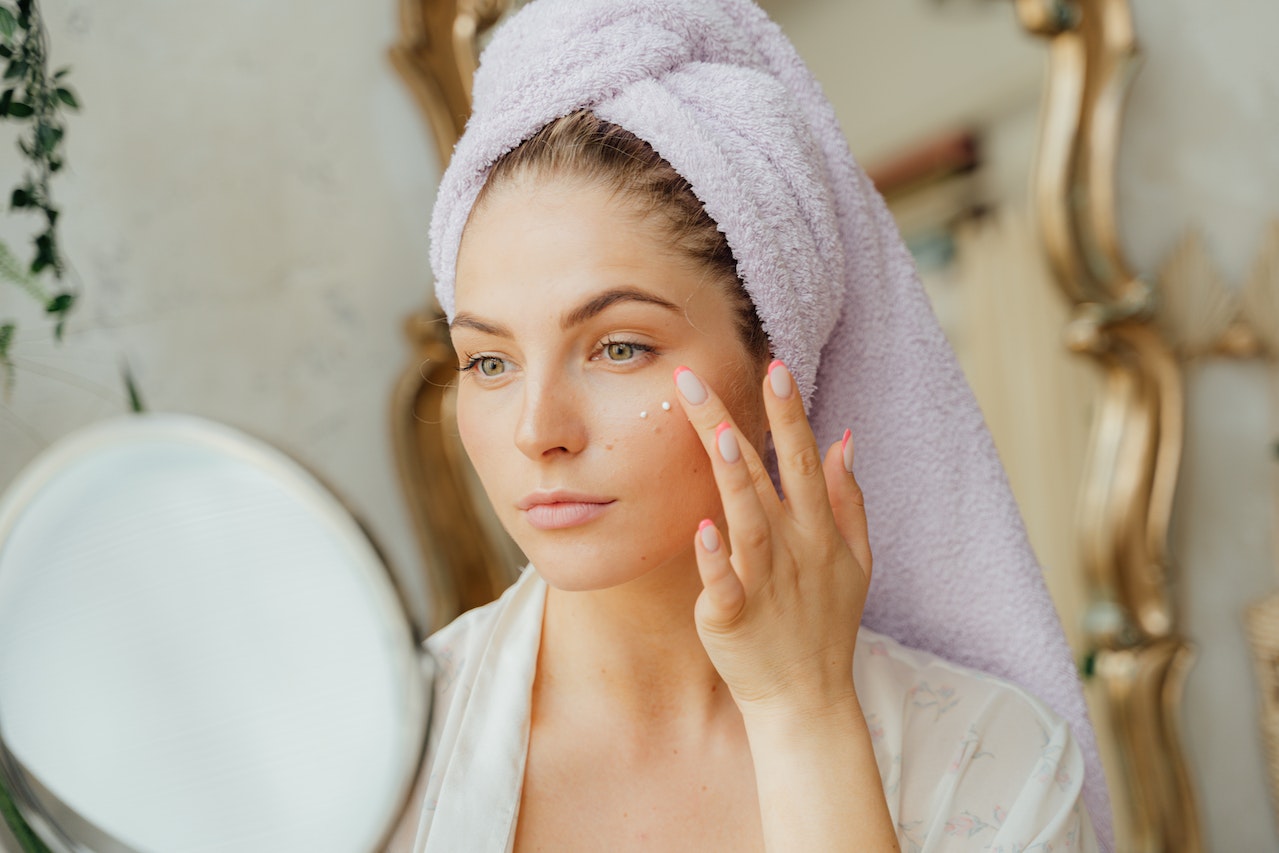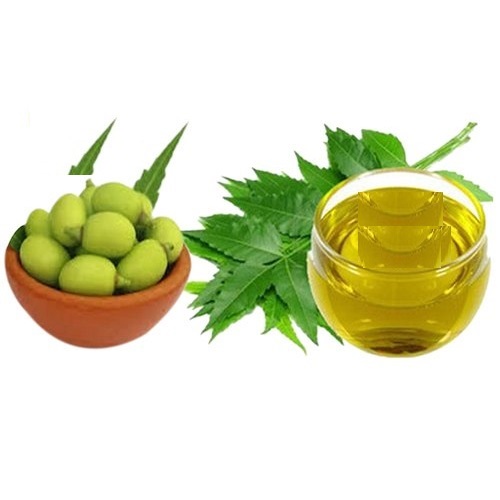Table of Contents
Stress is a prevalent aspect of modern life, and its effects can manifest in various ways, including on our skin. One common skin concern related to stress is the emergence of stress pimples. These unwelcome blemishes can have a significant impact on our self-esteem and overall well-being. We will delve deep into the world of stress pimples, exploring their causes, prevention techniques, and effective treatment strategies. By understanding the underlying factors and implementing proactive measures, you can regain control over your skin and minimize the occurrence of stress pimples.
✔️ What Are Stress Pimples?
Stress is a common experience in our fast-paced modern lives, and its effects can extend beyond our mental and emotional well-being. One physical manifestation of stress is the appearance of stress pimples. These pesky blemishes often crop up at the most inconvenient times, adding to the stress we are already experiencing. In this article, we will explore what stress pimples are, their characteristics, and the underlying factors that contribute to their formation.
Understanding Stress Pimples
Stress pimples, also known as stress acne or stress-induced breakouts, are a specific type of acne that is triggered or exacerbated by stress. They typically appear as small, red or inflamed bumps on the skin, primarily on the face, but can also occur on the neck, chest, and back. While stress pimples share similarities with other forms of acne, they have distinct characteristics that set them apart.
Causes and Factors
Several factors contribute to the formation of stress pimples. The primary factor is stress itself, which triggers a cascade of physiological responses in the body. When we experience stress, the body releases stress hormones like cortisol, which can stimulate the sebaceous glands to produce more oil. This excess oil, along with dead skin cells and bacteria, clogs the pores, leading to the formation of pimples. Hormonal fluctuations during periods of stress can also contribute to the development of stress pimples.
Additionally, lifestyle choices, such as a poor diet, inadequate sleep, and lack of skincare routine, can worsen stress pimples. Environmental factors like pollution and humidity can also impact the skin and exacerbate breakouts.
Distinguishing Stress Pimples from Other Types of Acne
It’s important to distinguish stress pimples from other types of acne to understand their unique characteristics. While stress pimples share similarities with common acne, such as whiteheads, blackheads, and inflammatory acne, they tend to be more closely linked to stressors in our lives. Identifying the specific triggers and patterns of stress pimples can help in implementing targeted prevention and treatment strategies.
Prevention and Management
Preventing and managing stress pimples requires a holistic approach that addresses both the physical and psychological aspects of stress. Here are some effective strategies:
- Stress management techniques: Incorporate stress reduction practices into your daily routine, such as exercise, meditation, deep breathing exercises, and engaging in hobbies or activities you enjoy.
- Skincare routine: Establish a consistent skincare routine that includes gentle cleansing, exfoliation, and moisturization. Choose non-comedogenic products suitable for your skin type.
- Healthy lifestyle habits: Maintain a balanced diet rich in fruits, vegetables, and whole grains. Get adequate sleep, stay hydrated, and limit your intake of sugary and greasy foods.
- Avoid touching or picking at your face: Touching your face can transfer bacteria and irritate the skin, leading to more breakouts.
- Protect your skin: Use sunscreen daily to shield your skin from harmful UV rays and prevent post-inflammatory hyperpigmentation.
When to Seek Professional Help
While many cases of stress pimples can be managed with lifestyle changes and over-the-counter treatments, severe or persistent breakouts may require professional intervention. If your stress pimples are causing significant distress, scarring, or interfering with your daily life, it is advisable to consult a dermatologist. They can provide personalized treatment options, prescribe medication if necessary, and offer guidance on managing stress-related skin concerns.
Conclusion
Stress pimples are a common skin issue that can be bothersome and affect our self-esteem. Understanding their causes, distinguishing them from other types of acne, and implementing preventive measures are crucial for effectively managing stress pimples. By adopting a holistic approach that addresses stress reduction, skincare, and healthy lifestyle habits, you can minimize the occurrence of stress pimples and maintain clearer, healthier skin. Remember, managing stress is not only beneficial for your skin but also for your overall well-being.
✔️ Causes of Stress Pimples
Stress pimples, also known as stress acne or stress-induced breakouts, can be a frustrating and unwelcome consequence of our modern, fast-paced lives. Understanding the underlying causes of stress pimples is essential for effectively managing and preventing their occurrence. In this article, we will explore the various factors that contribute to the development of stress pimples, shedding light on the complex interplay between stress, hormones, and other lifestyle and environmental factors.
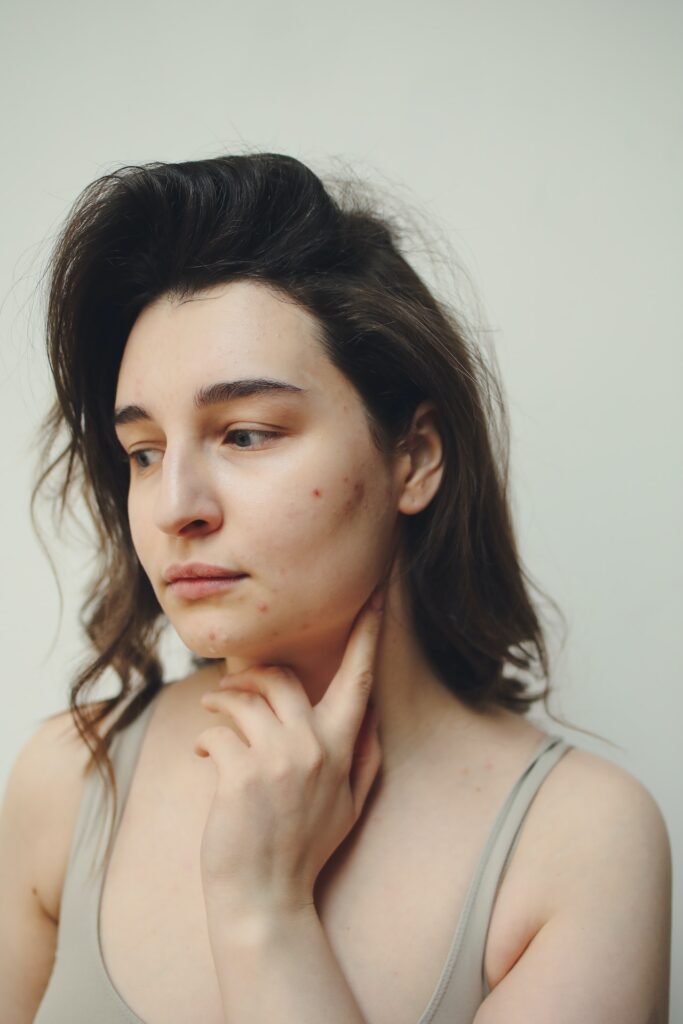
Hormonal Imbalances
Hormonal imbalances play a significant role in the formation of stress pimples. During periods of stress, the body releases stress hormones, such as cortisol, which can stimulate the sebaceous glands to produce more oil. This excess oil, known as sebum, can clog the pores and create an ideal environment for acne-causing bacteria to thrive. Additionally, stress can disrupt the delicate balance of other hormones, such as androgens, which further contribute to the development of pimples.
Increased Sebum Production
Stress triggers the production of cortisol, a hormone that stimulates the sebaceous glands to produce more sebum. Sebum, a naturally occurring oil, plays a vital role in maintaining the skin’s moisture and providing protection. However, excessive sebum production can lead to clogged pores, trapping bacteria and dead skin cells, resulting in the formation of stress pimples.
Inflammation and Immune Response
Stress can have a profound impact on the immune system and inflammatory response in the body. When we experience stress, the body releases inflammatory chemicals, which can trigger inflammation in the skin. This inflammation can worsen existing acne lesions and contribute to the development of new stress pimples. Additionally, a compromised immune system due to stress can weaken the skin’s defense mechanisms, making it more susceptible to bacterial infections and breakouts.
Lifestyle Factors
Several lifestyle factors can exacerbate the formation of stress pimples. Poor diet choices, such as consuming excessive amounts of sugary or greasy foods, can contribute to inflammation and hormonal imbalances, further aggravating acne. Lack of sleep and inadequate rest can increase stress levels and impair skin health, making it more prone to breakouts. Additionally, chronic stress often leads to neglecting proper skincare routines, which can contribute to the accumulation of dirt, oil, and dead skin cells on the skin’s surface, leading to clogged pores and acne.
Environmental Factors
Environmental factors can also influence the development of stress pimples. Exposure to air pollution, particularly in urban areas, can introduce harmful particles and toxins onto the skin’s surface, clogging pores and triggering inflammation. High humidity levels can increase sweat and oil production, leading to increased pore congestion and breakouts. Additionally, excessive sun exposure without proper protection can cause skin damage and inflammation, exacerbating existing acne and contributing to stress pimples.
Psychological Factors
The mind-body connection plays a crucial role in the formation of stress pimples. Psychological factors, such as chronic stress, anxiety, and emotional distress, can trigger hormonal imbalances, elevate cortisol levels, and weaken the immune system. These factors can disrupt the skin’s natural balance and contribute to the development of stress pimples. Moreover, the psychological impact of stress pimples themselves, including lowered self-esteem and increased self-consciousness, can create a cycle of stress and further aggravate the condition.
Conclusion
Stress pimples are the result of a complex interplay between various factors, including hormonal imbalances, increased sebum production, inflammation, lifestyle choices, environmental influences, and psychological factors. By understanding the causes of stress pimples, individuals can take proactive measures to manage and prevent breakouts. Implementing stress management techniques, adopting a healthy lifestyle, maintaining a consistent skincare routine, and seeking professional guidance when necessary can help minimize the occurrence of stress pimples and promote clearer, healthier skin. Remember, managing stress pimples is a multifaceted approach that requires addressing both internal and external factors for optimal results.
✔️ Prevention Techniques for Stress Pimples
Preventing stress pimples is an important goal for those who experience the impact of stress on their skin. By implementing effective prevention techniques, individuals can minimize breakouts, improve skin health, and boost their overall well-being. In this article, we will explore a range of proactive strategies and lifestyle modifications that can help prevent the formation of stress pimples, allowing you to maintain a clear and radiant complexion.
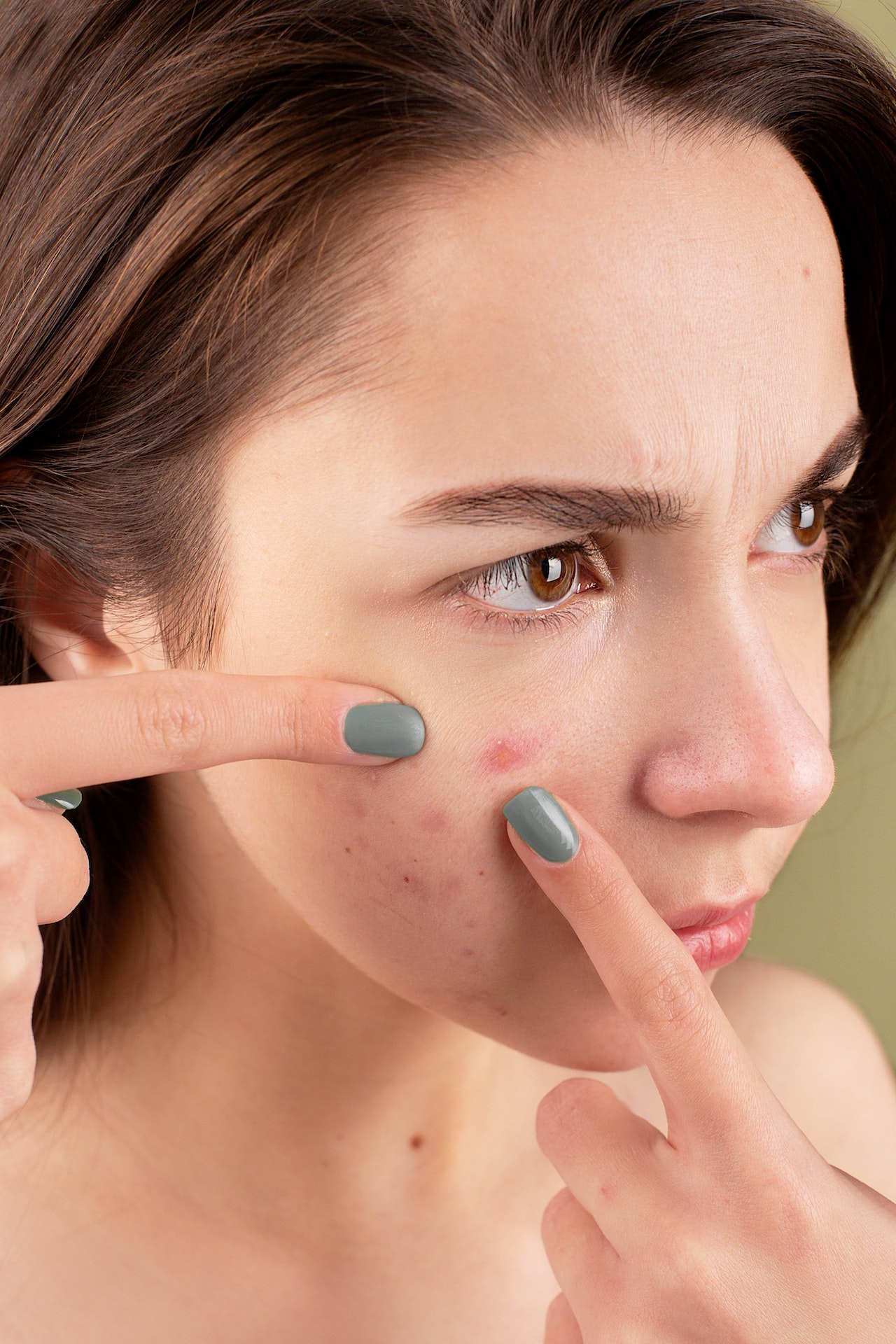
Stress Management Techniques
Managing stress is crucial for preventing stress pimples. By integrating stress management techniques into your daily regimen, you have the ability to mitigate the adverse effects of stress on your skin. Explore the following strategies:
- Mindfulness and meditation: Practicing mindfulness exercises and meditation can help reduce stress levels and promote a sense of calm.
- Exercise and physical activity: Engaging in regular exercise releases endorphins, which can alleviate stress and improve overall well-being.
- Adequate sleep and relaxation: Prioritize quality sleep and relaxation techniques, such as deep breathing exercises or taking warm baths, to reduce stress and promote skin rejuvenation.
- Healthy diet and hydration: Consume a well-balanced diet rich in fruits, vegetables, whole grains, and lean proteins. Maintain optimal hydration levels by ensuring an ample intake of water throughout the day.
Skincare Routine and Practices
Establishing a consistent skincare routine and adopting certain practices can play a significant role in preventing stress pimples. Consider the following tips:
- Gentle cleansing: Cleanse your face twice a day with a gentle cleanser to remove dirt, excess oil, and impurities without stripping the skin of its natural oils.
- Proper hygiene: Avoid touching your face excessively to minimize the transfer of bacteria and prevent pore-clogging.
- Appropriate moisturization: Use a lightweight, non-comedogenic moisturizer suitable for your skin type to maintain proper hydration without clogging pores.
- Non-comedogenic products: Opt for skincare and cosmetic products labeled as non-comedogenic, meaning they are less likely to clog pores and cause breakouts.
- Sun protection: Apply a broad-spectrum sunscreen with at least SPF 30 daily to shield your skin from harmful UV rays, which can exacerbate acne and post-inflammatory hyperpigmentation.
- Stress-relieving skincare rituals: Incorporate stress-relieving skincare rituals into your routine, such as facial massages, aromatherapy, or indulging in a soothing face mask.
Healthy Lifestyle Habits
Certain lifestyle habits can contribute to stress pimples, so adopting healthier practices is essential for prevention:
- Balanced diet: Maintain a nutritious diet that includes a variety of vitamins, minerals, and antioxidants to support skin health and reduce inflammation.
- Hydration: Drink an adequate amount of water daily to keep your skin hydrated and help flush out toxins.
- Avoid excessive sugar and greasy foods: Limit your intake of sugary and greasy foods, as they can contribute to inflammation and aggravate acne.
- Regular exercise: Engage in regular physical activity to improve blood circulation, reduce stress, and promote a healthy complexion.
- Stress reduction activities: Engage in activities that help you relax and unwind, such as practicing yoga, listening to music, or spending time in nature.
- Proper sleep hygiene: Prioritize sufficient and quality sleep to allow your body and skin to regenerate and repair.
Seek Professional Help
If stress pimples persist or become severe despite preventive measures, seeking professional help is advisable. A dermatologist can provide personalized advice and treatment options based on your specific skin condition and concerns. They may recommend prescription medications, topical treatments, or professional procedures to manage stress-related acne effectively.
Conclusion
Preventing stress pimples requires a comprehensive approach that addresses both internal and external factors. By incorporating stress management techniques, maintaining a consistent skincare routine, adopting healthy lifestyle habits, and seeking professional guidance when necessary, individuals can significantly reduce the occurrence of stress pimples and promote clearer, healthier skin. Remember, prevention techniques require consistency and patience, as results may vary from person to person. With diligence and a proactive mindset, you can take control of stress-related acne and maintain a radiant complexion.
✔️ Treatment Strategies for Stress Pimples
Treating stress pimples involves a combination of targeted interventions that address the underlying causes and symptoms of acne. From over-the-counter remedies to professional interventions, a range of treatment strategies can effectively manage stress-induced breakouts. In this article, we will explore various treatment options and strategies to help individuals combat stress pimples and achieve clearer, healthier skin.
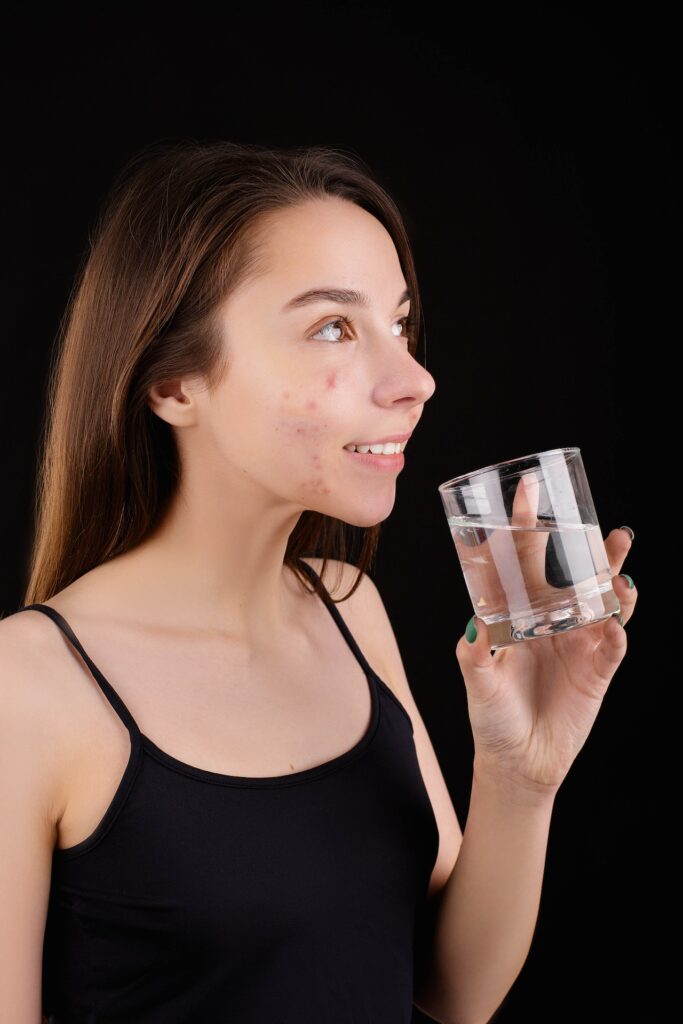
Topical Treatments
Topical treatments are commonly used for treating stress pimples. These over-the-counter products often contain active ingredients that combat acne-causing bacteria, reduce inflammation, and unclog pores. Consider the following:
- Benzoyl peroxide: Effective in killing acne-causing bacteria and reducing inflammation.
- Salicylic acid: Helps exfoliate dead skin cells, unclog pores, and reduce redness and swelling.
- Retinoids: Derived from vitamin A, these compounds promote cell turnover, prevent clogged pores, and reduce the appearance of acne scars.
- Sulfur-based products: Known for their antibacterial and exfoliating properties, sulfur-based treatments can help control breakouts.
Prescription Medications
In more severe cases, a dermatologist may prescribe medications to manage stress pimples. These medications are typically used when over-the-counter treatments have proven ineffective. Some common prescription options include:
- Oral antibiotics: These medications help control bacteria and reduce inflammation. They are usually prescribed for a short period to avoid antibiotic resistance.
- Hormonal therapies: For individuals with hormonal imbalances contributing to stress pimples, hormonal therapies like oral contraceptives or anti-androgen medications may be recommended.
- Isotretinoin: A potent oral medication used for severe and persistent acne cases. It reduces oil production, kills bacteria, and regulates skin cell turnover. However, it has potential side effects and requires careful monitoring.
Professional Procedures
In-office procedures performed by dermatologists can provide effective treatment options for stress pimples. These procedures target specific acne-related concerns and can include:
- Chemical peels: These treatments involve the application of chemical solutions to exfoliate the skin, unclog pores, and improve overall skin texture.
- Microdermabrasion: A non-invasive procedure that uses tiny crystals or a diamond-tipped wand to exfoliate the skin, revealing a smoother complexion.
- Laser or light therapies: These treatments target bacteria and reduce inflammation. They can also help minimize acne scars and improve skin tone and texture.
- Extraction: Dermatologists can perform professional extractions to remove stubborn blackheads, whiteheads, and pimples safely.
Lifestyle Modifications
In addition to topical treatments and professional interventions, making certain lifestyle modifications can support the effectiveness of treatment strategies:
- Stress management: Incorporate stress reduction techniques such as exercise, meditation, or counseling to minimize the impact of stress on the skin.
- Healthy diet: Opt for a well-balanced diet rich in fruits, vegetables, whole grains, and lean proteins, while limiting processed and sugary foods.
- Skincare routine: Establish a regular skincare regimen that encompasses gentle cleansing, exfoliation, and moisturization to promote healthy and nourished skin. Use non-comedogenic products suitable for your skin type.
- Avoid picking or squeezing: Resist the temptation to pick or squeeze pimples, as this can lead to further inflammation and potential scarring.
Conclusion
Treating stress pimples requires a comprehensive approach that combines topical treatments, prescription medications, professional procedures, and lifestyle modifications. It is important to consult with a dermatologist to determine the most suitable treatment options based on the severity of your stress pimples and individual skin condition. Remember, consistency and patience are key when it comes to treating acne, as results may take time to become visible. With the right treatment strategies and a holistic approach, individuals can effectively manage stress pimples and achieve clearer, healthier skin.


